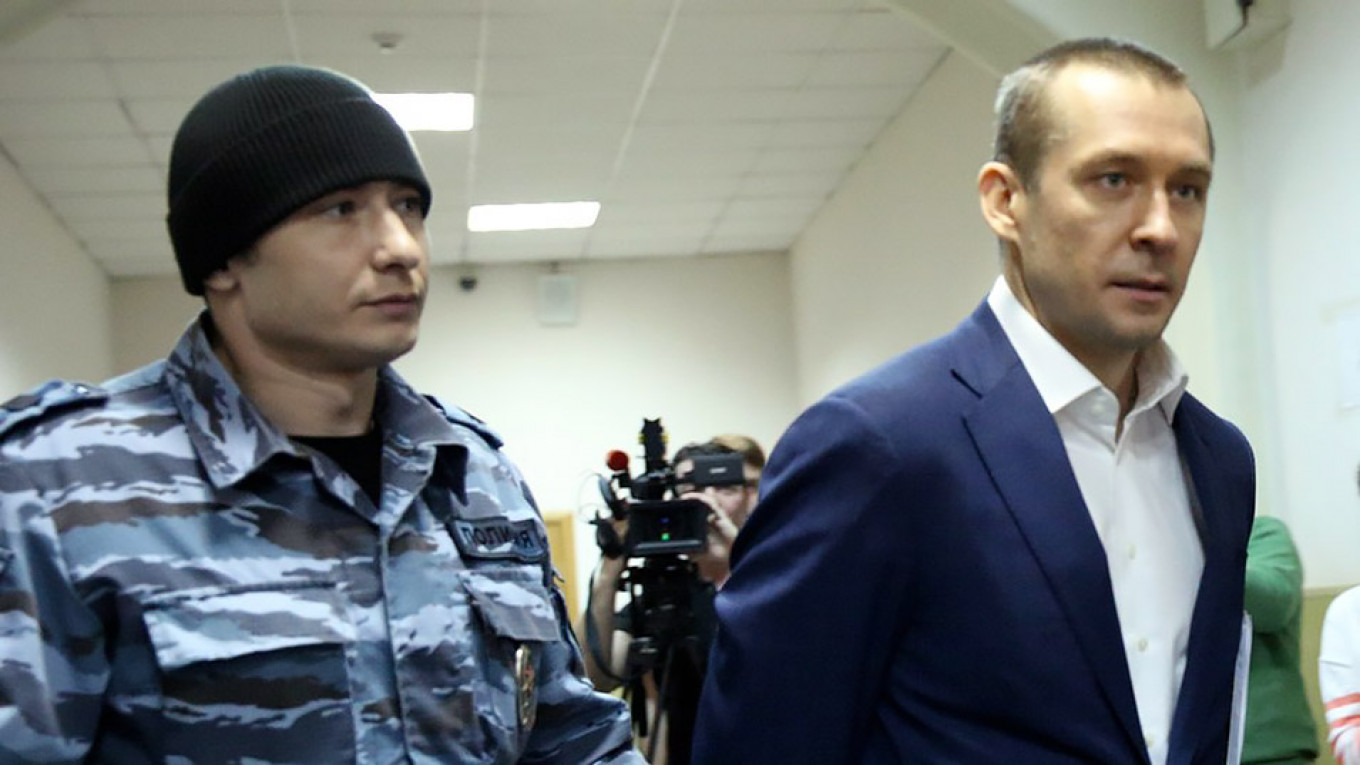
Russia has ruled that authorities can seize suspicious assets owned by relatives and acquaintances of criminals convicted of corruption unless they can prove they were lawfully obtained, the Vedomosti business daily reported Tuesday.
The ruling came in response to an appeal by a convicted police anti-corruption official’s family, who argued that the authorities had illegally seized 9 billion rubles ($140 million) worth of property from them. The official, Dmitry Zakharchenko, was sentenced to 13 years in prison this year for large-scale bribery and obstruction of justice.
The Constitutional Court’s ruling effectively places anyone at risk of civil forfeiture if they fail to prove that their assets were legally obtained, Zakharchenko’s lawyer Alexander Gorbatenko told Vedomosti.
“Imagine the situation with this common example,” Zakharchenko said in an interview from prison last month. “A civil servant is charged with a bribe and you’re unexpectedly summoned to court and shown a tax return that says there’s not enough money to buy a car that you own.”
“But the ‘investigation finds’ that you and the defendant communicated five years ago, therefore they’re the de-facto owner of your car because their bribes are enough to buy more than one,” Zakharchenko told the MBKh Media news website.
The court said it found no contradiction between Russia’s anti-corruption law, which the authorities invoked in seizing assets from Zakharchenko’s relatives, and the Constitution. The wronged party still has the right to submit proof that they obtained their assets legitimately, Vedomosti cited the Constitutional Court as saying.
The 9-billion-ruble seizure from Zakharchenko’s family in 2017 had set a precedent even before the latest court ruling, Vedomosti reported. Authorities seized 12 billion rubles ($188 million) from former FSB colonel Kirill Cherkalin this year, making him the richest ex-official to be investigated for corruption — the distinction previously held by Zakharchenko. Last week, a Moscow court confiscated 6 billion rubles worth of assets from Cherkalin and his family as part of the corruption investigation.
Lawyers warned that the Constitutional Court’s decision to allow civil forfeiture for individuals outside a convicted criminal’s family will hurt Russia’s attractiveness as an investment destination.
“Confiscation of property is a serious act that can’t occur arbitrarily and must be convincingly justified,” Vedomosti quoted lawyer Alexei Melnikov as saying.
“Our prosecutors have long stopped proving anything, simply stating their position and having the court agree with it,” he said.
